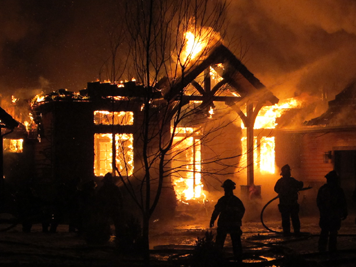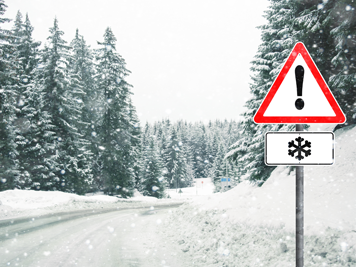You had a great time enjoying a relaxing break from the normal hustle and bustle that only the privacy and comfort your second home can provide. But when the season is over, it’s important to make sure your home is closed up securely.
How tightly you should close up your vacation home depends on if you have a property management company overseeing it, workers coming to the property on a regular basis, or if you simply ask a trusted friend or neighbor to stop by periodically to check on things. Whatever your plan, it is important to take these steps to help avoid possible threats to your home away from home.
Arrange for Off-Season Services
Arranging for which services your home requires while you are away depends largely upon the season and where your home is located.
If your home is closed during the winter and located in a climate with freezing temperatures, keep in mind that one of the most common causes of home damage during colder months is frozen pipes that burst and cause water damage. If you do not plan to maintain heat during colder months, you should have pipes and appliances drained completely to keep them from freezing and causing extensive damage.*
Other common causes of loss in winter months include fallen trees, backed-up gutters that force water under shingles as snow melts, and ice dams that form on roofs with poor insulation. It is important to have trees near the house trimmed before the season, clean out roof gutters, and ensure that your roof is properly insulated.
There are also specific loss-prevention tasks to consider if your home is closed during the summer months. You should hire a landscaping service to keep the grass trimmed, gutters cleaned, and trees trimmed to avoid damage during storms. Keeping your pool maintained is also an important consideration during the summer.
When leaving a home vacant in a humid climate, mold growth is a common threat. To avoid mold damage, set your air conditioner to 77 degrees, install a humidistat that will override your air conditioner settings if the humidity level gets too high, and turn on your dehumidifier.
If your home is in a hurricane-prone area, you may want to consider upgrading to impact resistant windows. Most homeowners associations do not allow hurricane shutters to be in place during extended absences, as they can attract burglars or prevent entry in case of an emergency, so you many want to hire a property manager to put up hurricane shutters if needed.
In earthquake-prone areas, your home should have an automatic seismic safety shut-off valve for natural gas lines at all structure entry points. You can contact your local gas/propane company if you are unsure whether your home has them installed.
Use Technology to Protect Your Vacation Home
While your home is vacant, you can help deter burglars by making it appear to outsiders as if someone is home. There are many home technology features and options available to help you with this:
Install a security system. Not only will a security system protect your home from burglars, many systems also notify the fire department if a smoke or carbon monoxide alarm goes off.
Install security cameras. Many new systems provide video monitoring and alerts to a web-enabled device.
Install motion-activated lights at all entrances.
Set interior lights on a timer to go on and off at different times of the night to make it appear that someone is home. Some security systems offer smart outlets, allowing you to turn lights on and off from a web-enabled device.
Checklist for Protecting Your Vacation Home
No matter your home’s location, the following home-protecting tasks should be completed before you leave for the season to stay one step ahead of potential threats.
Sign up for emergency advisories through your local jurisdiction.
Forward your mail.
Unplug all appliances – including the television and computers – in case of lightning strikes.
Empty the refrigerator and pantry. Food can attract animals and insects, and canned goods can explode if they freeze.
Clean your home thoroughly to help discourage pests.
Put away outdoor furniture, grills, and garbage cans.
Lock the garage and storage shed.
Lock all windows and doors.
Turn on the security system.
By following these tips, you can leave your home for the season knowing it will be ready to make new memories with your family and friends for years to come.
*Please keep in mind that you may need to set your heat above 55 degrees when you’re away in extreme weather conditions and depending on how well your home is insulated. Insurance policies require that reasonable care must be taken to maintain heat or water must be shut off and all systems and appliances must be drained.



